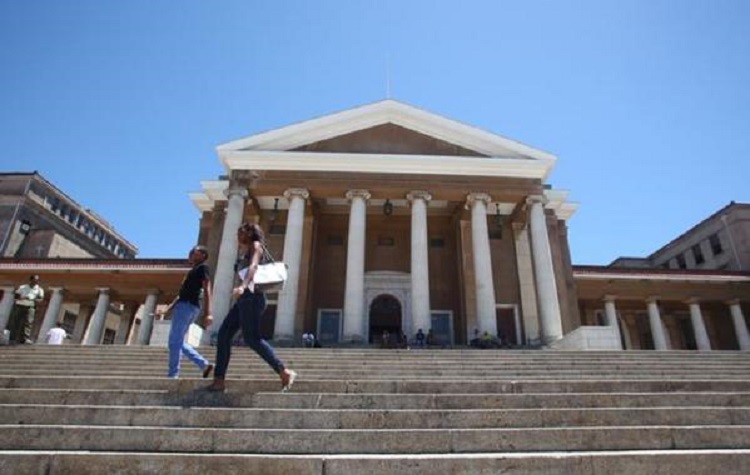Thembisa Xeketwane wakes up at 04:00 every morning to ready herself for work. She never oversleeps because she doesn’t have money to pay for a bus ticket if she misses her train.
“I work for wages that are so little. I have to choose between paying my debt and buying food for my children,” Xeketwane said.
She was among the UCT workers who protested on Tuesday for the end to outsourcing, and for a basic salary of R10 000 per month.
Xeketwane has been working as a cleaner since 1999. She earns a gross salary of about R5 000, but only ends up with half of this.
“If you buy food, you cannot buy clothes. If you buy clothes, you can’t buy food. To just buy a bus ticket, you must go to the loan shark. There is no money to pay for extra things,” she said.
“We are exploited. The bosses get richer, but the workers must suffer. I am living in poverty. I work every day, but I never get my head above water.”
Xeketwane, a mother of three, is putting her son through college and two children through school on her meagre salary.
“I am paying for all of this with loans. Some months I can’t even pay the people I owe,” she lamented.
“It makes me angry that the vice-chancellor last year earned over R2m for the year. How many years must I work to earn what he makes in a month?”
But according to UCT, outsourcing is the most efficient and cost-effective option for support services.
UCT spokesperson Patricia Lucas said the UCT Council called for a review of outsourcing in 2014.
However, she said the total additional costs of insourcing all services at the university would be R58m a year, with additional upfront asset purchase costs of R68m.
The UCT minimum wage for outsourced workers was R5 018 per month, said Lucas.
Thando Mangcu, of the student movement Rhodes Must Fall, which supported the protest, said mass outsourcing was a “deliberate policy to exploit workers in order to cut the costs of the institution”.
“When outsourcing was legislated and introduced into universities, these workers who were already earning very low wages, lost the meagre benefits and status they had on campuses when the universities transferred their contract to private companies,” she said.
“This resulted in a huge reduction in salaries and [workers] lost many of their benefits, including being able to send their children to the university at a huge rebate, their job security and much of their bargaining power.”
But Lucas said UCT had extended its “workers’ benefit” to include outsourced workers.
The benefit provides reduced tuition rates for outsourced workers and their legally determined dependents.
Lucas added that the call for a halt to the transfer of workers from one contract to another was included in UCT’s outsourcing contracts to allow the same workers to continue in their jobs at the university, even when the outsourcing contract changed from one company to another.
“This ensures workers can keep their jobs, even if a contract is discontinued,” she said. News24






 WhatsApp us
WhatsApp us 

